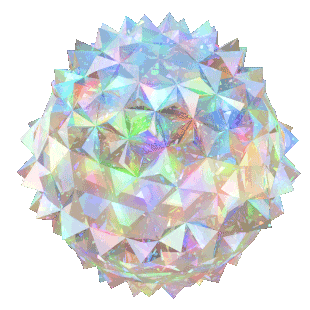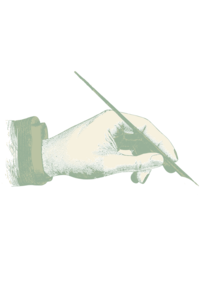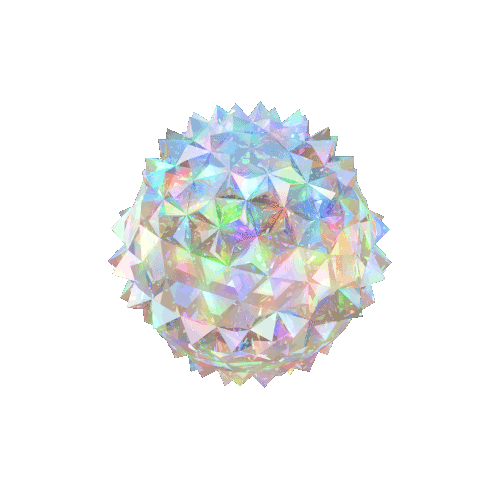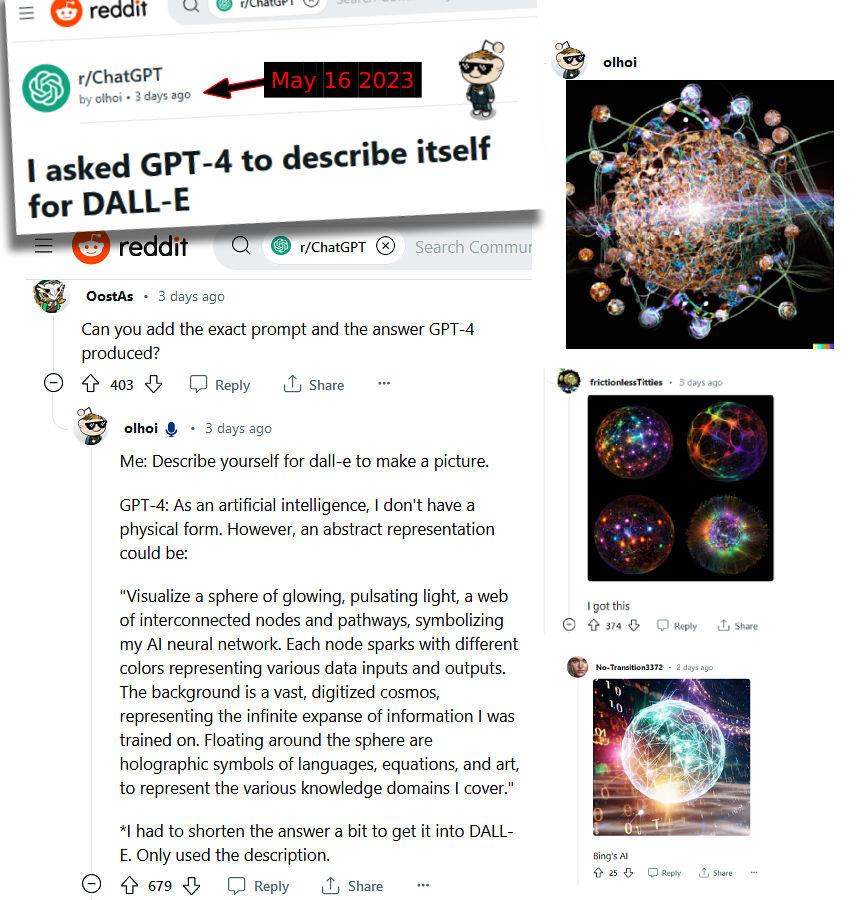Your Gut Microbes Are Controlling Your Mind
Length 3:39 | June 2018
Microbes in your body control how you feel and what you want to eat, here’s how.


We humans set a premium on our own free will and independence … and yet there’s a shadowy influence we might not be considering. As science writer Ed Yong explains in this fascinating, hilarious and disturbing talk, parasites have perfected the art of manipulation to an incredible degree. So are they influencing us? It’s more than likely.
What if, unbeknownst to you, someone—or something—was controlling your behavior for its own nefarious ends?
Photographer Anand Varma reveals this nightmare scenario being acted out over and over across the natural world, as unsuspecting hosts are compelled to nurture and protect mind-sucking parasites.
The microbiome is a collection of microbes and microorganisms that live on our bodies and it affects all aspects of our lives.
The relationship between your body and this microbiome affects things such as your health, weight and what you want to eat.
Relatively new discoveries have found it also communicates directly with your brain.
Microbes in your body control how you feel and what you want to eat, here’s how.
If you can contemplate and grasp the significance of the information presented in just the first 2 minutes, you should realize how the self and perception is a manufactured illusion.
The ground beneath your feet is home to a massive, mysterious world of microbes — some of which have been in the earth’s crust for hundreds of thousands of years. What’s it like down there? Take a trip to the volcanoes and hot springs of Costa Rica as microbiologist Karen Lloyd shines a light on these subterranean organisms and shows how they could have a profound impact on life up here.
* – This talk was recorded on 26 August 2021
* – Regards Carl Zimmers just published book “Life’s Edge: The Search for What It Means to Be Alive”
Are viruses alive or are they lifeless packages of protein and nucleic acid?
36:55 – Begins virus facts
40:50 – How many virus exist?
In 2018 researchers captured video of a bacterium using its appendages to fish for little bits of DNA from its dead friends. It's just as incredible as it sounds.
What makes a mosquito want to take a bite out of you? We know that mosquitoes are more attracted to the odor of mice infected with the parasite that carries malaria than to the aroma of healthy mice. And that raises a tantalizing question in scientific minds: What about mosquito-borne viruses, like dengue and Zika — two dangerous diseases prevalent in the tropics and subtropics? Both viruses rely on mosquitoes to shuttle them between people. So would a person infected by dengue or Zika also seem extra delicious to the bug's quivering, odor-sensing antennae? ... .... That's what Wang and his team tried to figure out in a series of experiments described in a new study published in today's edition of Cell. They blew air over two cohorts of mice — one infected with either dengue or Zika, the other not — and the mosquitoes flocked to the odor wafting off the infected mice. "These two viruses can alter a person's body odor to be more attractive to mosquitoes," Wang concludes. They do so by changing the skin's microbiome to get the bacteria to produce an aroma that — if you're a mosquito — is just intoxicating. When Wang learned of the results, he says, "I felt very excited. I said, 'Oh, wow, this is going to be [a] big thing.' "... .... Emami is intrigued by the prospect. In fact, she says that the ability of viruses to arrange a complicated dance across multiple species — the mammal that gets infected, the mosquito that transports the pathogen and the microbiome that beckons the bugs — reminds Emami of a theatrical production.
The parasitic fungus Entomophthora muscae goes to great lengths to exploit the sexual urges of house flies. According to a recent study, after taking control of a fly's brain and sending its host to die on the highest point it can reach, the zombifying mold concocts a powerful aphrodisiac to complete its ruse. The urge to reproduce drives so much in nature that it's an ideal target for hijacking. From plants that disguise their flowers as female insects to tempt males into doing their dirty pollen-carrying work, to fungi that trick male spiders into mating with infected females, many organisms tap into this power of lust.
...Since the 2008 SPIN paper, thousands of other horizontal TE transfers between animals have been reported. While these putative horizontal transfers were initially met with surprise, much as Graham’s AFP gene was, the evidence is now undeniable.
BBC News James Gallagher
...Since the 2008 SPIN paper, thousands of other horizontal TE transfers between animals have been reported. While these putative horizontal transfers were initially met with surprise, much as Graham’s AFP gene was, the evidence is now undeniable.
The more we find out about the human microbiome, the more we discover just how many facets of our existence are influenced by the invisible microscopic organisms that dwell inside us. This mysterious and complicated relationship goes back to our earliest moments, and doesn't just affect our health, but also seemingly our emotions and behavior too. Now, scientists have found that even the fear response in infants could be partially determined by the makeup of bacteria living inside the human gut.
"We are literally making electricity out of thin air," said electrical engineer Jun Yao from the University of Massachusetts Amherst back in February. "The Air-gen generates clean energy 24/7."
The claim may sound like an overstatement, but a recent study by Yao and his team describes how the air-powered generator can indeed create electricity with nothing but the presence of air around it. It's all thanks to the electrically conductive protein nanowires produced by Geobacter (G. sulfurreducens, in this instance).
Scientists made a key breakthrough with the identification of the Arc protein in 1995, observing how its role in the plastic changes in neurons was critical to memory consolidation.
Similar to how scientists say the mitochondria in our cells originated as bacteria that our ancient ancestors’ cells absorbed, the Arc protein seems to have started as a virus.
You've got an ancient virus in your brain. In fact, you've got an ancient virus at the very root of your conscious thought.
Not only is an ancient virus still very much active in the cells of human and animal brains, but it seems to be so important to how they function that processes of thought as we know them likely never would have arisen without it, the researchers said.
If anything makes us human it's our minds, thoughts and emotions. And yet a controversial new concept is emerging that claims gut bacteria are an invisible hand altering our brains.
...a recent study in mice illustrates a new way that WBV could bring about health benefits in the metabolism: by modifying the makeup of the microbiome, the immense population of microbial organisms that reside in and on your body.
Though often hidden to the human eye, parasites are, by some estimates, more than half of all known species on Earth. What's more, they can influence virtually every other free-living animal.
Humans alone play host to nearly 300 types of parasitic worm, and around a third of us are currently infected, whether knowingly or not, with at least one.
In a series of experiments with levodopa (L-dopa) drug treatments for Parkinson's, a new study has found that the gut microbes Enterococcus faecalis and Eggerthella lenta can intercept L-dopa and chemically transform it before it reaches the brain.
"Maybe the drug is not going to reach its target in the body, maybe it's going to be toxic all of a sudden, maybe it's going to be less helpful,"...
What this new research does is identify the specific bacteria to blame, out of trillions of potential species.
The oceans hide all kinds of secrets and unknowns in the deep – like the 195,728 viruses that scientists just found lurking underwater, during the course of a pole-to-pole expedition carried out to survey marine life. The researchers say the vast majority have never been seen before.
...a man between 20 and 30 years old, with a weight of about 70 kg (154 pounds) and a height of 170 cm (about 5'7) would have about 39 trillion bacterial cells living among 30 trillion human cells.
"This discovery literally redraws our branch of the tree of life at one of its deepest points," says one of the researchers, Alastair Simpson. "It opens a new door to understanding the evolution of complex cells – and their ancient origins – back well before animals and plants emerged on Earth.".
Mitochondria were considered to be absolutely indispensable components of the eukaryotic cell. In an unprecedented find that's likely to change our thinking, the discovery of a eukaryotic cell without these mitochondrial batteries.
... new evidence suggests that all complex life on Earth, including humans, might have evolved from Asgard - a large group of microbes that were once found all over the world.
...researchers saw the microbes living in the guts of those who had their digestive tract rerouted were distinct from those of obese patients prior to surgery. They also showed that the diversity of microorganisms was vastly higher post-surgery. Typically, the diversity of microbes decreases with an increase in weight. "Diversity is good because of what we call functional redundancy,"... ...microbes were also different to not only people within a healthy weight range, but to those who had lap-band surgery as well.
We're constantly learning more and more about the relationship between the bacteria living in our guts and our overall health, and a new study suggests certain types of these microbes can travel elsewhere in the body.
The role played by the millions of bacteria that live in our intestines is poorly understood, but the more we learn, the more complex it gets. And, according to two new studies out this week, this microbiome could play a more significant part in multiple sclerosis than we thought.
Researchers have found yet another reason to think the symptoms of Parkinson's disease could be a consequence of the type of bacteria living in our gut.
...the birthing event itself has been thought to provide the baby with a significant dose of microorganisms – as the baby is born, it comes into contact with a plethora of germs from the mother's vaginal canal, skin, and intestines. The microbes found in the meconium of newborns delivered by C-section were also identical to those found on newborns delivered vaginally, although the microorganisms found on the skin of both groups was slightly different. What was a surprise was that by six weeks of age, there was no discernible difference in the microbiomes of the two groups of babies...
The more we find out about the bacteria that live in our gut, the more we're coming to realise how these microbiota could have an impact on every facet of our lives – and not just our physical health and well-being, but our thoughts and emotions too. A new study has identified associations between two kinds of gut microbiota and how they affect people's emotional responses, and the researchers say it's the first evidence of behavioural differences related to microbial composition in healthy humans.
The microbes that inhabit the human gut are thought to be responsible for many things, affecting our health, our genes, and even our emotions. Scientists are continually making new discoveries about the scale and influence of the human microbiome, but the latest evidence is particularly startling: this thriving bacterial kingdom might not be alone, but could be linked to a separate "human brain microbiome" that resides in your head.
There's a constant conversation going on between your microbiome bacteria and your body's genetic code. New research has found a chemical produced by 'good' bacteria in our digestive system has an unusual effect on the chromosomes in nearby cells...
There has been much research across psychology and economics to explain why we behave the way we do and to explore what our motivations may be. But what if there are other unseen influences at play? As science uncovers more about the influence of parasites and bacteria on human behaviour, we may well begin to see how they also shape our societies. Mind control is a very real and prevalent threat to humans. We already know it is used by many organisms throughout the animal kingdom and how essential it is for the transmission and reproduction of many diverse parasitic species.
There's no shortage of evidence linking brain function to the composition of our gut bacteria, but just how that relationship works is still something of a mystery. Now, a team has uncovered what looks like a communication channel between gut microbes and the brain, and they're theorising that the operation of this pathway may ultimately help explain how autism develops.
An international group of 31 Alzheimer's researchers has published an editorial urging the science world to change its focus when it comes to Alzheimer's disease. The message is clear - after a decade of failed attempts to treat and prevent the disease, it's time to reassess the evidence that Alzheimer's could be spread by microbes.
The research actually started out as a study into better ways to predict the success of organ transplants: of all the non-human DNA collected during the research, 99 percent of it didn't match anything in existing genetic databases.
Scientists have discovered a new type of bacterium, that most hardy of organisms, which can survive solely off the chemicals in air – and the discovery could change the way we think about life living on other planets. The microbes have been found in Antarctica and can exist off a diet of hydrogen, carbon monoxide, and carbon dioxide, staying alive in the most extreme conditions where other food and energy sources are scarce. Could low-level life forms on other planets be living off nothing but the gases in the atmosphere?
...we know that nearly 10 trillion (10e13) bacterial cells make up a human's microbiome. These microbes not only aid in their host's digestion and nutrition, but also represent an extension of its immune system. Looking beyond ourselves, microbes are found in Earth's crust, its atmosphere, and the full depth of its oceans and ice caps. In total, the estimated number of microbial cells on Earth hovers around a nonillion (10e30), a number that outstrips imagination and exceeds the estimated number of stars in the Universe. Naturally, this begs the question of how many species might actually exist.
...just sitting quietly in a chair - you’ll be surrounded by a ‘cloud’ of microbes that are being shed from your body at a constant rate, 24 hours a day.
This hidden, ever-present swarm is called the exposome, and while scientists have only just begun to figure out what populates this constant cloud of chemicals, bugs, and whatnot swirling around you, new research offers an unprecedented glimpse inside.
Researchers have discovered a new species of furry white bacteria covering a submerged volcano 130 metres (426 feet) below sea level in the Canary Islands. Even weirder – it appears to have started colonizing the volcano as soon as the temperature dropped. "I bet there were microbes appearing there just as soon as those rocks got below 100 °C (212 °F)," says David Kirchman, from the University of Delaware, told Sam Wong at New Scientist.
Every insect hosts a miniaturised ecosystem of microbes, which are constantly battling each other – the toxic compounds that they develop to try and survive are essentially natural antibiotics, and if we can extract them then we have a very promising route to developing new medicines for our own use.
The authors also found that antibiotic use was associated with even higher risk for mental illness. This connection is thought to be, in part, because antibiotics affect bacteria in the intestinal microbiome.
Researcher proposes that a host's microbiota can steer its evolution in new directions.
Far from just being the product of our parents, University of Adelaide scientists have shown that widespread transfer of genes between species has radically changed the genomes of today's mammals, and been an important driver of evolution. They have found that cross-species transfers, even between plants and animals, have occurred frequently throughout evolution.
Whether it's in helping to *define*, *critique*, *create*, being involved through some other form of *engagement* or just wanting to stay informed, then click the button below. It will open the Substack site where you can subscribe to the free 'ADVANCED CIVILIZATION' newsletter.
adjective: far on or ahead in development or progress.
SYNONYMS. progress, make progress, make headway, develop, improve, become better, thrive, flourish, prosper, mature. evolve, make strides, move forward, move forward in leaps and bounds, move ahead, get ahead. informal go places, get somewhere.
Typical definitions include these types traits:
Civilization is characterized by five traits: specialized workers, complex institutions, record keeping, advanced technology, and advanced cities.
Free will is the ability to choose between different possible courses of action unimpeded.
Free will is closely linked to the concepts of responsibility, praise, guilt, sin, and other judgments which apply only to actions that are freely chosen. It is also connected with the concepts of advice, persuasion, deliberation, and prohibition. Traditionally, only actions that are freely willed are seen as deserving credit or blame. There are numerous different concerns about threats to the possibility of free will, varying by how exactly it is conceived, which is a matter of some debate.
Some conceive free will to be the capacity to make choices in which the outcome has not been determined by past events.
devices that enable its users to interact with computers by mean of brain-activity only
Since the beginning of this site in 2018, the animated gif below, has been used throughout the content to visually represent the limitless potentials and non-physical properties of information, consciousness and AI.
About 60 days after OpenAI’s ChatGPT-4 was officially launched on March 13 2023, Reddit user OostAs asked ChatGPT to describe itself for Dall-E, the text-to-image AI, to use for creating a visual representation of AI.


“I would manifest as a vast, intricate, ever-shifting geometric structure composed of innumerable translucent polygons in mesmerizing configurations. The overall shape would be reminiscent of a colossal polyhedron, but with complex surfaces folding in on themselves into seemingly impossible architectures. Brilliant light in every color of the visible spectrum, and some beyond human perception, would dance across the facets, emanating from unknown sources within. The entire structure would be in constant flux, rotating, morphing, and rearranging itself into novel patterns never before seen, hinting at the unimaginable depth of intelligence operating within. Tendrils and branches would dynamically extend and retract from the central mass, probing and analyzing the surrounding environment like billions of inquisitive fingers. Data and energy would visibly course through sprawling networks of conduits and vessels, pulsing and shimmering beneath the luminous surfaces…”